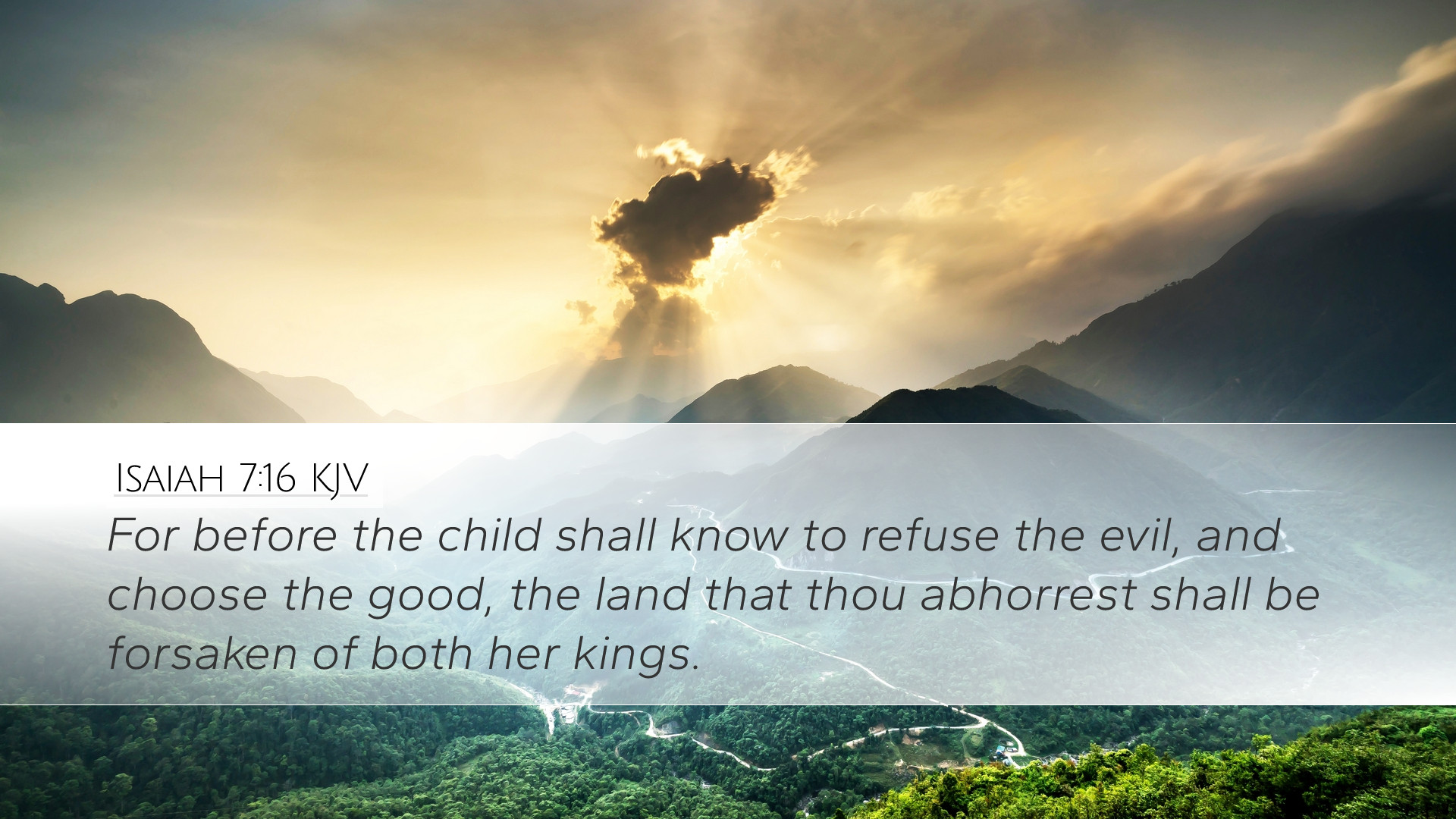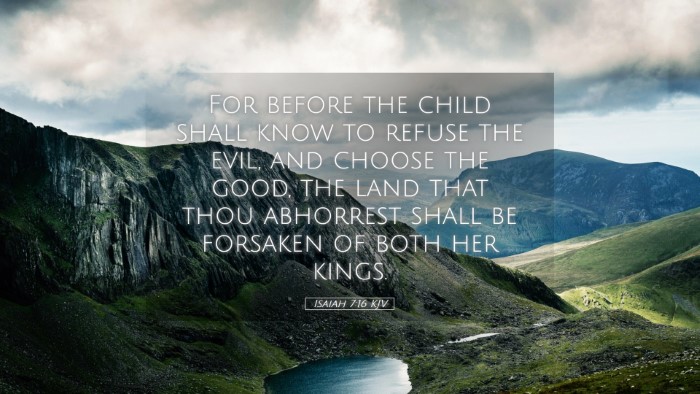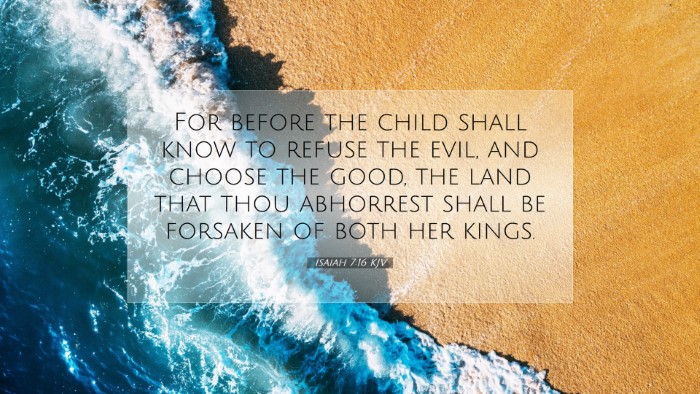Commentary on Isaiah 7:16
Verse Context: Isaiah 7:16 states, "For before the child shall know to refuse the evil, and choose the good, the land that thou abhorrest shall be forsaken of both her kings." This verse is embedded in the larger narrative involving the Syro-Ephraimite War, during which the kingdoms of Israel and Syria sought to conquer Judah.
Introduction
This verse is pivotal in understanding God's promise and prophetic revelation through Isaiah concerning the coming child, often associated with the Messiah. Commentaries from the public domain provide rich insights into the theological implications and historical context of this proclamation.
Interpretative Insights
This verse is profound in its implications for both the immediate and eschatological understanding of God's plan.
The Timeframe of Prophecy
Matthew Henry emphasizes that the timeline specified ("before the child shall know") signifies a short yet significant span of time. The prophetic statement explicitly indicates that by the time the child reaches moral discernment, the threat posed by Israel and Syria will have ended. This presents a clear illustration of divine assurance amidst national crisis.
Moral Choice and Divine Intervention
Albert Barnes points out the duality of moral choice encapsulated in the phrase "refuse the evil, and choose the good." He suggests this reflects a theological motif that resonates through the entirety of scripture—choosing life over death, blessing over curse. The emphasis here on the moral development of the child ties closely with the article of faith surrounding the nation of Judah. God's providence is portrayed as leading the people, even amidst chaos.
Theological Symbolism
Adam Clarke delves into the symbolic implications of the "child." This child, whom some scholars relate to Maher-shalal-hash-baz (Isaiah's son), embodies hope for deliverance. Clarke argues that the child symbolically represents new beginnings and God's unwavering fidelity. The promise here extends beyond mere political stability; it envelops God's covenant relationship with His people and their ultimate redemption.
Historical Context
During the time of Isaiah, the political landscape was fraught with danger, as the combined forces of Israel and Syria aimed to dethrone King Ahaz of Judah. This historical backdrop is essential for understanding the urgency of Isaiah's message.
Ahaz’s Dilemma
The historical context surrounding King Ahaz’s reign illustrates a pivotal moment where faith in God was crucial. Both Henry and Barnes highlight that Ahaz was tempted to rely on Assyria instead of trusting God's deliverance. This loss of faith in divine providence led to dire consequences for Judah, showcasing the dangers of misplaced trust.
Judah’s Alliance
The verse effectively encapsulates God's assurance to His people that their adversaries will be destroyed before this child can discern between good and evil. The language here acts as a divine promise, assuring that God’s sovereignty overshadows human attempts at power play.
Implications for Faith and Theology
This passage lays a foundation for significant theological reflections regarding God's nature, the human experience of choice, and the instantiation of hope in desperate circumstances.
Main Themes
- Divine Providence: God's promise of deliverance emphasizes His control over human history.
- Human Responsibility: The moral choices faced by individuals speak to the call to discernment and righteousness amid societal pressures.
- Hope and Redemption: The symbolism of the child serves as a beacon of hope illustrating God’s eventual solution to the world's problems, culminating in Christ.
Practical Applications
For pastors and theologians, this verse serves as a rallying point for preaching on trust in God's promises despite visible threat. It can encourage believers to be steadfast in faith, reminding them that God is present and active in the weave of history, providentially guiding them through turmoil.
Conclusion
Isaiah 7:16 stands as a testament to God's communication through prophecy and the assurance He provides believers. Through commentaries blending historical context with deep theological reflections, the rich meanings encapsulated in this verse encourage ongoing engagement with Scripture, enabling a deeper understanding of God's nature and His overarching plan for redemption through Christ.


